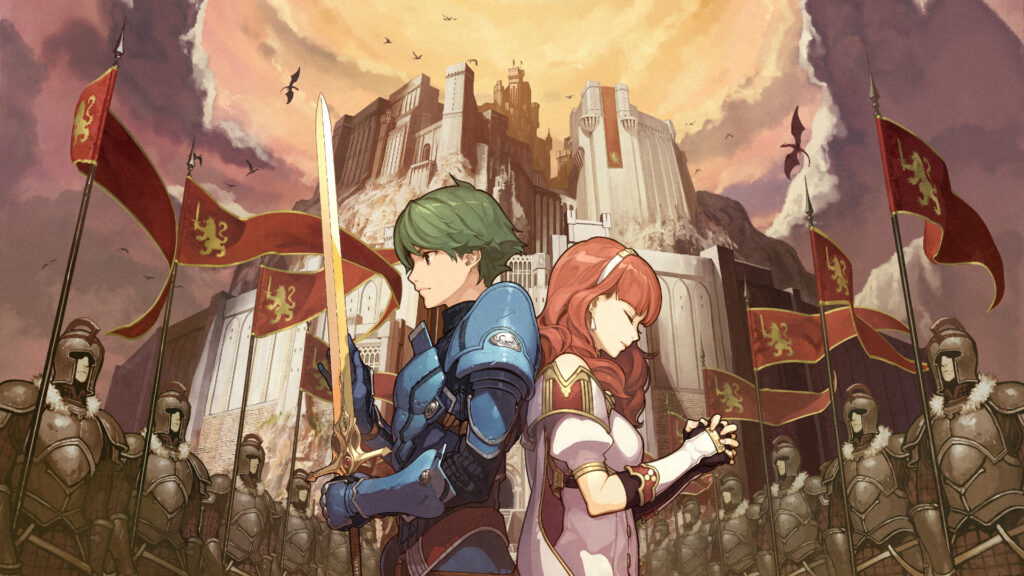
Why Fire Emblem Echoes’ Subtle Approach to Asexuality has Importance in the Real World
Here’s a weird thing about being asexual: sex jokes don’t make sense. Throughout my high school and college years, nine times out of ten a joke where the punchline was sexual in nature would fly over my head, landing somewhere three miles back. I made jokes out of my lack of instant understanding, a way to smooth over exactly how different I was from the rest of my peers, while also not needing to address what made me different. Thankfully, those awkward years crossed over with a growing positive asexual community on Tumblr and other social media sites.
There are many paths to acceptance. After college I was able to connect with people who were affirming of my identity as queer and asexual, and who I was as a person. I’ve ended up with a solid friend-group that I very much cannot live without. But affirmation, and fitting into labels that I feel best express me, is not the same as validation. A place where I found that validation was in Fire Emblem Echoes: Shadows of Valentia.
When I first played Shadows of Valentia, it was simply because it was another Fire Emblem game, and developer Intelligent Systems owns my wallet. I quite quickly fell in love with the world, researched the differences between it and its original 1992 Japanese incarnation as Fire Emblem Gaiden, and was enchanted by the characters. My favorite of the cast from Shadows of Valentia is Lukas, a practical and even-keeled knight who is one of the first units that you gain, and who stays in your army through the end of the game.
A key part of any Fire Emblem game is the support conversations; interactions between characters that help deepen the relationships between them, as well as add mechanical bonuses when the characters attack enemies near each other. It’s one of my favorite parts of playing Fire Emblem because of how they help inform the personalities of the characters.
Lukas has three support conversations in total, each exploring a part of himself that he is uncomfortable with. One is about his cold personality, one is about his childhood wish to not be a soldier, and one is about his romantic life.
Or rather, his lack of a romantic life.
In the final section of his support conversation dealing with romance, Lukas reflects on a figure from his past and says, “I’m not sure if I love her or not. Since being parted from her, I feel no particular longing to see her again. I sometimes wonder if a vital part of me is broken. I look at Clive and Mathilda and see… Well, you used the word ‘fire’. But whatever it is that they have, I seem to lack it.”
When I first read this line, I had to put down my DS and let myself breathe from the sudden lifted weight. To have a character use language that I had always thought about myself – “broken”, “lacking” – to have worries expressed that I had wrestled with, was earth-shattering for me. It was a flash where I hadn’t felt alone, where I didn’t feel shameful for how I had thought about myself.
There’s something to be said for having a character who is still wrestling with themselves and their feelings. Oftentimes with queer representation in media, the character already knows who they are, and the journey to how they got there is often speculation fodder for transformative works and meta analysis. Lukas was in that transitional period, and still true to my asexual experience. I claim him as being asexual because of that.
Perhaps one line of dialogue isn’t enough to say that a character is or is not queer. Yet for me, that one line was able to remake my world, and solidify Lukas as an important character – forever one of my favorites from Fire Emblem or any game series.






